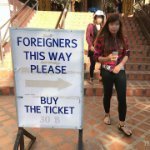AirBnB legality & handling
-
Recently Browsing 0 members
- No registered users viewing this page.
-
Topics
-
-
Popular Contributors
-
-
Latest posts...
-
15
-
47
-
83
-
83
-
47
How dumb are you really Maga?
a majority of the USA. Got it. Trump voters are idiots. All of them. Bet you would happily round them up. Do you think Trump has secured our Southern Border? Good job, oui.? -
307
UK Mohammed Fahir Amaaz & Muhammad Amaad on Trial over Manchester Airport Clash
The female officer in absolute tears doesn't really help the female cause. Female officers can help diffuse situations, as the theory is a criminal maybe more relaxed around a woman who maybe more calmer. But when around total idiots they are of no use, and if anything kicks off they are even more useless.
-
-
Popular in The Pub






.thumb.jpeg.d2d19a66404642fd9ff62d6262fd153e.jpeg)





.thumb.jpg.b54783ad387f65d779e04f535fcfeee9.jpg)
Recommended Posts
Create an account or sign in to comment
You need to be a member in order to leave a comment
Create an account
Sign up for a new account in our community. It's easy!
Register a new accountSign in
Already have an account? Sign in here.
Sign In Now